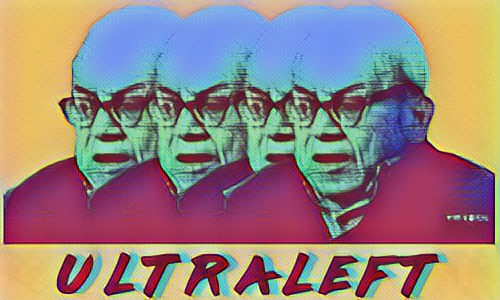Heterarchies
A heterarchy is a system of organization where the elements of the organization are unranked (non-hierarchical) or where they possess the potential to be ranked a number of different ways. A heterarchy may be parallel to a hierarchy, subsumed to a hierarchy, or it may contain hierarchies; the two kinds of structure are not mutually exclusive. In fact, each level in a hierarchical system is composed of a potentially heterarchical group which contains its constituent elements.
In a group of related items, heterarchy is a state wherein any pair of items is likely to be related in two or more differing ways. Whereas hierarchies sort groups into progressively smaller categories and subcategories, heterarchies divide and unite groups variously, according to multiple concerns that emerge or recede from view according to perspective. Crucially, no one way of dividing a heterarchical system can ever be a totalizing or all-encompassing view of the system, each division is clearly partial, and in many cases, a partial division leads us, as perceivers, to a feeling of contradiction that invites a new way of dividing things.
Political hierarchies and heterarchies are systems in which multiple dynamic power structures govern the actions of the system. They represent different types of network structures that allow differing degrees of connectivity. In a (tree structured) hierarchical structure every node is connected to at most one parent node and zero or more child nodes. In heterarchy, however, a node can be connected to any of its surrounding nodes without needing to go through or get permission from some other node.
Socially, a heterarchy distributes privilege and decision-making among participants, while a hierarchy assigns more power and privilege to the members high in the structure.
Coined by polymath Warren McCulloch’s 1945 publication of an essay titled, “A heterarchy of values determined by the topology of nervous nets.” The term “heterarchy” is best defined by its opposition to hierarchy. In a hierarchy, if A is over B, and B is over C, then A is over C — your basic pecking order. In a heterarchy, though, you can have A over B, B over C, and C over A.
Think of the game “Rock, Paper, Scissors.” Paper covers rock; rock crushes scissors; scissors cut paper. Think also of the system of checks and balances in the U.S. Constitution. Different branches of government have supreme authority in some situations, but not in others. And no one is above the law. No kings or tyrants allowed.
The problem was nailed by McCulloch, who actually dissected minute, circular configurations of neurons he called “dromes of diallels.” While the flesh and blood realities of brains are a lot messier, the essential logical core could be captured in the ideal case of just six neurons arranged in a circular configuration such that A would stimulate B and inhibit C. B would stimulate C and inhibit A. C would stimulate A and inhibit B.
“Heterarchy” is an unwieldy word. In the Oxford English Dictionary the definition is “rule by aliens.” Despite its unwieldiness, and shadows of aliens, though, the term recommends itself for the way it mediates the dialectic between hierarchy and anarchy.
One form of organization in a heterarchy would be socioicracy, also called dynamihc governance, is a system of governance which seeks to create psychologically safe environments and productive organizations. It is distinguished by the use of consent, rather than majority voting, in discussion and decision-making by people who know have a shared objective or work process.
It was coined in 1851 by French philosopher Auguste Comte as a parallel to sociology, the science that studies how people organize themselves into social systems. Comte believed that a government led by sociologists would use scientific methods to meet the needs of all the people, not just the ruling class. American sociologist Lester Frank Ward in an 1881 paper for the Penn Monthly was an active advocate of a sociocracy to replace the political competition created by majority vote.
Ward expanded his concept of sociocracy in Dynamic Sociology (1883) and The Psychic Factors of Civilization(1892). Ward believed that a well educated public was essential for effective government, and foresaw a time when the emotional and partisan nature of contemporary politics would yield to a more effective, dispassionate, and scientific discussion of issues and problems. Democracy would thus eventually evolve into a more advanced form of government, sociocracy.




Comments
Post a Comment